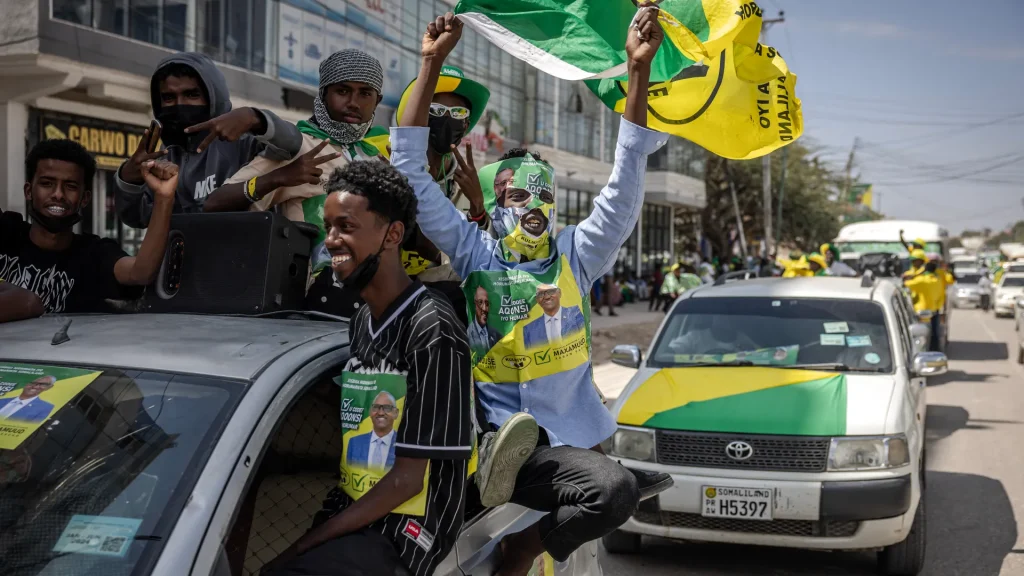Somaliland voters are heading to the polls today to elect a president, as the breakaway Somali region anticipates a new era of international recognition after over three decades of self-rule.
Since declaring independence from Somalia in 1991, Somaliland, strategically located near the Red Sea, has operated autonomously but remains unrecognised globally. This lack of formal recognition has restricted its access to international finance and limited travel for its six million residents.
Hargeisa’s government is optimistic about securing a formal agreement with Ethiopia, based on a preliminary deal signed in January, which would grant landlocked Ethiopia access to the coast in exchange for diplomatic recognition. Somaliland is also hopeful that US President-elect Donald Trump may be more sympathetic to its independence aspirations.

Current President Muse Bihi Abdi, who has led Somaliland since 2017, faces a re-election challenge from Abdirahman Cirro, the main opposition candidate. Although domestic policies set them apart, both candidates back the memorandum of understanding with Ethiopia, according to Somaliland’s representative to Kenya, Mohamed A. Mohamoud, who indicated that the government plans to finalise the deal after the election, regardless of the outcome.
The Ethiopia agreement has strained Mogadishu’s ties with Addis Ababa, a key player in Somalia’s peacekeeping efforts against Islamist insurgents, and has driven Somalia closer to Ethiopia’s regional rivals, Egypt and Eritrea.
Hargeisa officials also hope the new Trump administration will reconsider the US’s longstanding support for Mogadishu’s sovereignty over Somaliland. Former US State Department officials who handled African policy during Trump’s previous term have shown public support for Somaliland’s recognition bid.


